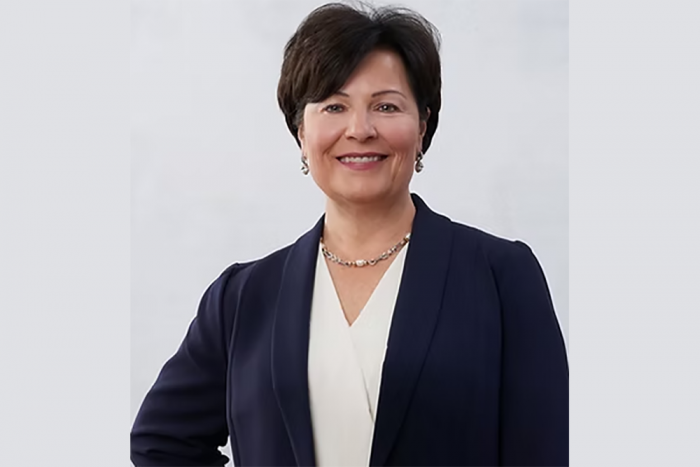RCPA Member Strawberry Fields Inc. CEO Cynthia Pasquinelli to Retire After 40+ Years of Outstanding Service
“My time at Strawberry Fields has been one of the greatest privileges of my life. Working alongside a passionate and talented team of staff and board members, we have expanded opportunities, empowered individuals and strengthened a mission that changes lives every day. I am incredibly proud to have played such a part in shaping the organization Strawberry Fields has become”
– Strawberry Fields Chief Executive Officer Cynthia “Cindy” Pasquinelli
Throughout her decades-long career at Strawberry Fields Inc., an affiliate of Devereux, Pasquinelli has led with passion, purpose and an unyielding commitment to providing the highest quality programs and services for individuals and families with intellectual and developmental disabilities, autism, and mental health challenges in Centre County, Pennsylvania.
Pasquinelli joined Strawberry Fields in 1985 as the director of mental health services. Two years later, she assumed the role of acting chief executive officer before being appointed to the position permanently.
On July 31, Pasquinelli will retire after 41 years of exceptional leadership and service to the organization.
“When I first joined Strawberry Fields, we offered just three programs. Today, we provide more than 20, including a variety of intellectual and developmental disability, mental health and early intervention services, along with two social enterprises that create employment opportunities for adults with disabilities,” said Pasquinelli. “We have always believed our role is to serve the community, and growing these programs, while witnessing the growth of the individuals in our care, has been extremely rewarding.”
Devereux President and CEO Carl E. Clark II noted, “Cindy’s leadership has been truly transformative. Her vision, integrity and deep expertise have made a lasting impact on Strawberry Fields, and the individuals and families served by the organization. Through her steadfast focus on person-centered, community-driven care, she has positioned Strawberry Fields for long-term success. As a result of her tireless efforts to improve the lives of those in need, her legacy will be felt for years to come.”
Creating opportunities, transforming lives
During her tenure, Pasquinelli said one thing she is most proud of is opening Strawberry Fields’ social enterprises: Scraps and Skeins, a creative reuse store, in 2015, and Good Day Café, a coffee shop, in 2018.
“We employ approximately 20 adults with disabilities at Good Day Café and seven with mental health challenges at Scraps and Skeins,” explained Pasquinelli. “Working at these businesses provides our individuals an opportunity to showcase their unique skills and talents, build life and social skills, and engage in their community.”
Pasquinelli added that launching Scraps and Skeins and Good Day Café has also had a positive impact on the organization as a whole: “People can see, firsthand, the meaningful difference we are making. We have grown our base of supporters as a result, which has allowed us to start new endeavors.”
Ensuring long-term sustainability
In 2025, under Pasquinelli’s leadership, Strawberry Fields became an affiliate of Devereux. Pasquinelli said the partnership strengthens Strawberry Fields’ ability to serve its community while ensuring long-term sustainability.
“Through this partnership, we have exciting new opportunities to innovate and grow,” Pasquinelli shared. “With Devereux’s support, we are preparing to introduce a new family-based mental health service and expand our autism assessment services in rural areas outside of Centre County. These efforts will help us reach more people, address emerging needs and continue to build a stronger, more connected community.”
Future plans
After her retirement, Pasquinelli plans to continue supporting Devereux in its efforts to forge new partnerships with organizations like Strawberry Fields that share its dedication to making a difference in the lives of individuals and families in need.
Most importantly, she will focus on continuing to develop the David Pasquinelli Memorial Fund for Strawberry Fields, which was established by the organization’s Board of Directors in 2022 in memory of Pasquinelli’s son.
“The funds raised will support Scraps and Skeins and Good Day Café, as well as any new projects that may need seed money,” Pasquinelli noted. “While I will be stepping away from my full-time role, I am excited to work with Strawberry Fields as it enters its next chapter and continues to grow and evolve.”
Learn more about Strawberry Fields Inc., and learn more about Devereux.
ODP Shares Updates to the PUNS Manual, DP1055, and Supplemental Form
The Office of Developmental Programs (ODP) has shared ODPANN 26-028. The purpose of this communication is to distribute the updated Prioritization of Urgency of Need for Services (PUNS) Manual and the revised DP1055 – PUNS Form, effective February 2026, and to announce the implementation of related updates to the Emergency PUNS process.
These updates are part of the Office of Developmental Programs’ continued implementation of the Multi-Year Program Growth Strategy and are intended to strengthen the accuracy, consistency, and documentation of Emergency Need determinations statewide.
Please review the announcement for more details.
Attachments:
Register Now for the DHS Autism and the Justice System In-Person Forum April 29
Legislators Discuss State Budget Proposal at Legislative Breakfast, Hosted by the Luzerne Wyoming County Providers Association

Immigration Enforcement Advisory for Health Care and Social Services Facilities
Message from the PA Department of Human Services (DHS):
Under the current federal administration, the U.S. Department of Homeland Security (U.S. DHS) has lifted restrictions that previously prohibited Immigration and Customs Enforcement (ICE) and Customs and Border Protection (CBP) officers from carrying out immigration enforcement actions, including arrests, in protected areas such as medical and behavioral health care facilities and social services establishments. It is now possible that U.S. DHS may attempt to conduct immigration enforcement activities in these settings.
The Pennsylvania Department of Human Services, along with the departments of Aging, Drug and Alcohol Programs, and Health, has prepared a non-regulatory advisory to provide general information about federal law applicable to immigration enforcement activities at health care and social services facilities. We also advise facility leadership and counsel to develop a written policy and standard operating procedures for what to do if immigration enforcement agents arrive on facility property or seek information about individuals you serve for immigration enforcement reasons.
In developing these policies and procedures, the Pennsylvania Department of Human Services advises that you consider:
- Designating legal and administrative point person(s) by name and phone number who will interact with immigration agents and review legal documents;
- Planning for how your facility will respond to requests for information, requests to enter non-public spaces to conduct an arrest, and immigration enforcement activity in public spaces;
- Engaging in advance with stakeholders and necessary resources; and
- Minimizing disruption to individuals served.
This advisory does not provide legal advice. Consult a licensed attorney or accredited representative for legal questions about a specific situation.
Thank you for your service to Pennsylvania.
National Council Shares Overview of Survey on HR 1 Impacts
March 2026 LTSS Subcommittee Agenda and Meeting Link Released
The Office of Long-Term Living (OLTL) has released the agenda and call information for the March 11, 2026, Long-Term Services and Supports (LTSS) Subcommittee meeting. This meeting will be held via webinar/remote streaming only from 10:00 am – 1:00 pm.
Some of the agenda topics include an update from OLTL, presentations from the Community HealthChoices Managed Care Organizations (CHC-MCO) on assisted living in lieu of services option, and personal assistance services (PAS) reductions and time allocated to public comments.
Comments and questions for this meeting should be sent via email.
The conference line for the meeting is:
Bridge Number: 1 (562) 247-8321 PIN: 132-269-143#
For additional information about this meeting, visit the LTSS Subcommittee website.

















